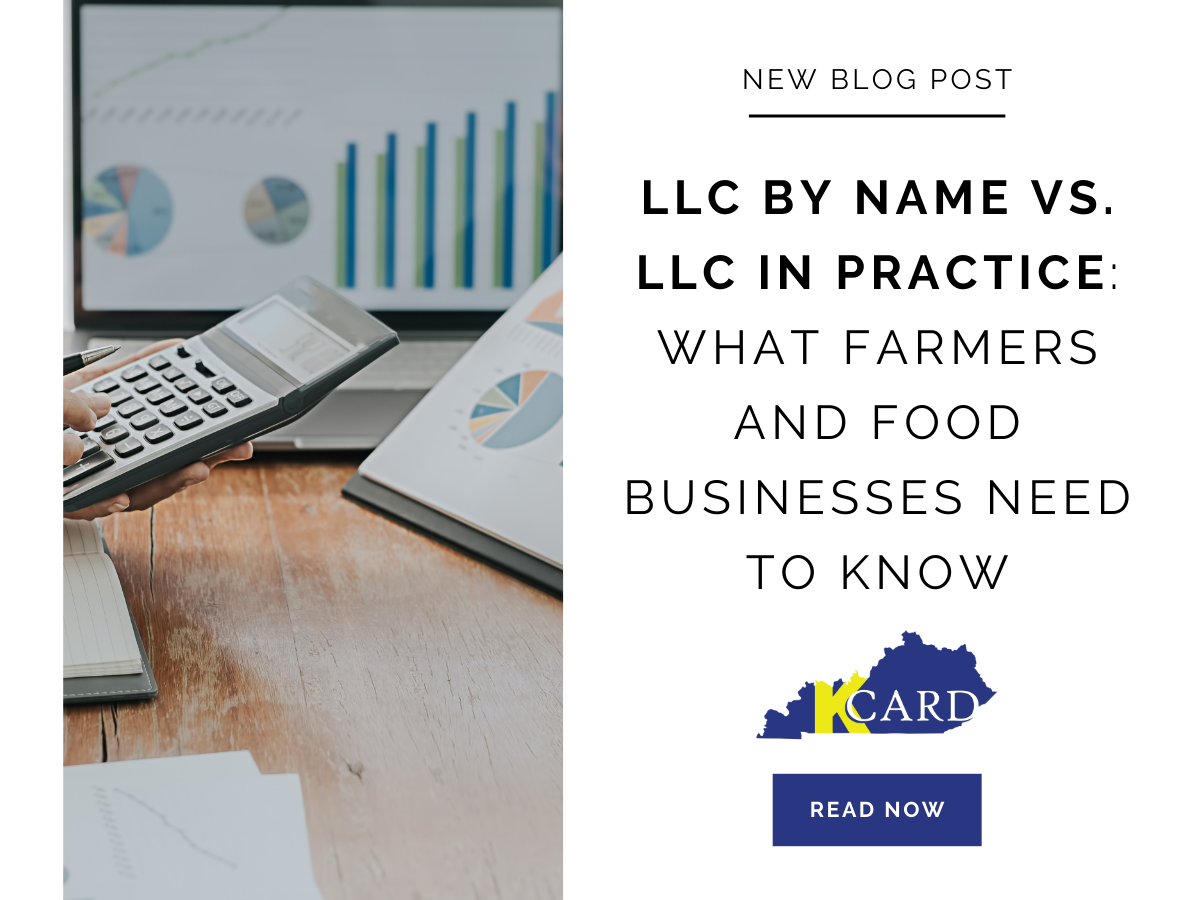If you're starting a business or thinking about how to grow your existing one, you’ve probably come across the term LLC, or Limited Liability Company. It’s one of the most popular business structures in the U.S.—especially for small business owners, independent contractors, and family-run operations.
But what exactly is an LLC? How does it protect you? And what’s the difference between having an LLC and actually operating as one?
What Is an LLC?
An LLC is a type of legal business entity that offers protection for your personal assets. In short: if your business is ever sued, falls into debt, or faces other legal challenges, your personal belongings—like your car, house, or savings account—may be protected from creditors and lawsuits. That’s one of the main reasons people choose to form an LLC.
But an LLC isn't just about legal protection. It also combines the best parts of two other structures:
The flexibility and tax benefits of a sole proprietorship or partnership
The liability protection of a corporation
Unlike a corporation, an LLC doesn’t pay corporate income taxes. Instead, business profits and losses "pass through" to the individual owners (called members), who report those figures on their personal tax returns. This is known as pass-through taxation—and it can simplify things during tax time.
Creating an LLC: Filing the Paperwork Is Just Step One
Many business owners think that once they’ve filed their Articles of Organization with the state, paid the filing fees, and received an official LLC certificate, they’re good to go but it’s not quite that simple. While filing the paperwork legally creates the LLC, that’s just the beginning. There’s a big difference between forming an LLC and operating your business as an LLC.
The Pitfall: Acting Like a Sole Proprietor in LLC Clothing
Imagine someone forms an LLC but continues to:
Use their personal name on business documents and checks
Run all business income through a personal bank account
Pay business expenses with a personal credit card
Skip recordkeeping or financial reports
If a legal issue arises, a court could say, “You're not actually treating your LLC like a separate business.” This could result in what's called piercing the corporate veil, meaning the LLC's legal protections could be stripped away—and personal assets could be on the line.
What It Really Means to Operate as an LLC
To fully benefit from the protections and advantages of an LLC, you need to treat it as a separate and professional business entity.
That includes:
1. Using Your LLC Name
Always use your business's full legal name (e.g., “Bluegrass Family Farm, LLC”) on:
Contracts and agreements
Invoices and checks
Marketing materials and business cards
Your website and email signature
This shows the public—and the courts—that you are operating as a business, not as an individual.
2. Keeping Finances Separate
Mixing personal and business finances is one of the fastest ways to lose your liability protection. You should:
Open a separate business bank account
Get a business credit card
Track income and expenses through accounting software
Maintain a profit and loss statement, balance sheet, and other records
This isn’t just about protecting yourself—it also makes your business easier to manage and grow.
3. Following Your Operating Agreement
An Operating Agreement is a document that outlines how your LLC will be run. It covers things like:
How profits are divided
Who makes decisions
What happens if a member leaves or passes away
Even if your state doesn’t require one, having an operating agreement can help avoid misunderstandings—and is another way to show that your LLC is a real, functioning entity.
4. Filing Taxes Properly
Most LLCs are considered “disregarded entities” by the IRS, meaning they don’t pay taxes at the company level. Instead, the profits and losses go to the owners' individual tax returns.
That said, you may still need to:
File an informational return
Pay self-employment taxes
Collect and remit sales tax
Pay state or local business taxes
Some LLCs choose to be taxed as an S-Corporation or C-Corporation for additional tax benefits. A tax professional can help you decide what’s best for your situation.
LLCs Aren’t for Everyone
While LLCs are flexible and offer strong protection, they aren’t the right fit for every business. For example:
If you plan to raise money from investors, a corporation might be better.
If you’re a freelancer with minimal risk, a sole proprietorship might work just fine—at least for now.
If your business is highly regulated or requires multiple licenses, another structure may be more appropriate.
Talk to a Pro Before You Decide
Setting up an LLC is relatively easy but making sure you’re using it correctly—and legally—is where many business owners fall short.
Before you file, talk to a qualified attorney or accounting professional. They can help you:
Choose the best structure for your goals
Understand the costs and responsibilities
Avoid common mistakes that can cost you down the road
Final Thoughts
Forming an LLC is more than just paperwork—it’s a commitment to treating your business like a business. When done correctly, it can provide the legal protection and flexibility you need to grow with confidence.
Whether you’re selling products at a local market, offering professional services, or launching an online brand, an LLC might be the right next step in your journey. If you’re in the process of considering business structures, check out our previous blog post with an overview of structures. You can also contact KCARD at (859) 550-3972 or kcard@kcard.info.

